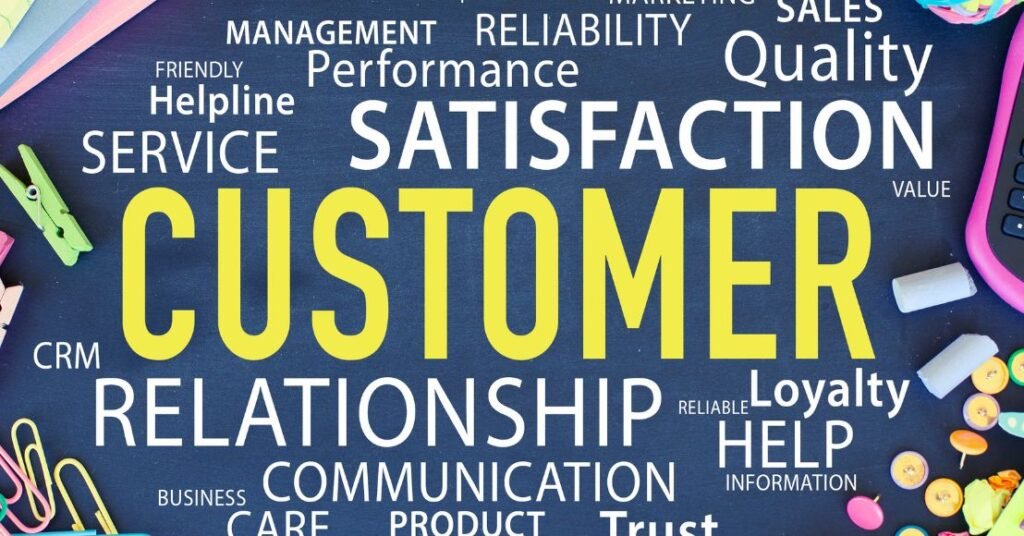It’s exciting to start a new business however, to sustain and grow it is more than an idea that’s great – it requires an flexible strategy. Scalability is the ability of your business to expand effectively without increasing costs or sacrificing quality. If you’re a founder of a new startup or an entrepreneur who is planning for the future, capacity from the beginning helps you build a business that is resilient to stress and can adapt to changes.
Here’s how to establish the foundation for an effective and scalable business plan starting from the beginning.
1. Define a Clear Vision and Long-Term Goals
Scalability starts by establishing the clarity. Before you begin operations define what your company is all about the goals it is aiming to accomplish, and the way it will evolve as time passes.
Why is it important:
- A clear vision helps keep your team in sync.
- It helps in decision-making during growth phases.
- Long-term goals will ensure that your efforts in the short-term can be a source of sustainable success.
Make a list of your mission and vision as well as your core values as early as possible. They will guide each strategic decision and partnership.

2. Identify a Scalable Business Model
It is not the case that every business model can scale easily. Pick one that can allow growth in revenue without linear increases in the cost of operations or manpower.
Examples of models that can be scaled include:
- Digital products and services: Courses, apps and SaaS platforms are able to provide thousands of users with a minimal cost increase.
- System that rely on subscriptions Generate predictable and recurring revenues.
- Automated first designs: Reduce manual dependency and improve efficiency.
Review your business plan using scale-ability criteria: Can it reach more customers in the same amount of time or less cost? If not, improve it prior to expanding.
3. Focus on Processes, Not Just People
If you’re a small company you can rely on a few skilled people. However, scalable companies are based on processes and systems rather than people.
Methods for implementing:
- Document workflows for each department.
- Make SOPs (Standard Operating Procedures) to ensure uniformity.
- Utilize automation tools to automate repetitive tasks such as sending marketing messages, nurture leads and managing data.
The processes you employ make your company repeatable effective, reliable, and predictable essential to grow.
4. Build a Strong, Flexible Team Culture
Scalability doesn’t just mean the systems but also about adapting people as your business expands. Find employees who are experienced capable, adaptable, and in line with your goals.
To create an scalable team:
- Employers should be looking for a the mindset, not just the skills.
- Encourage feedback and innovation.
- Give responsibility to others and allow them to make decisions.
A team that is motivated and autonomous is able to scale operations more quickly than one that is micromanaged.

5. Invest in the Right Technology Early
Technology is the basis of the capacity to scale. The sooner you incorporate the correct tools, the more smooth the expansion process will be.
Think about technology in the context of:
- Automation Accounting, CRM as well as HR applications.
- Communication: Slack, Microsoft Teams, or Asana for coordination.
- Analytics Applications such as Google Analytics or Power BI to track performance.
Don’t patch systems later on. Instead, build an infrastructure of digital technology that will develop with the changes.
6. Develop a strong brand identity right from the beginning
The brand you represent is the biggest scalable asset. Although products and services can change in the future, a consistent and reliable brand can help you draw new customers as well as retain current ones.
How to expand your brand’s image:
- Make sure that messages are consistent on all devices.
- Develop a distinct visual identity: logo and color palette and tone.
- Make sure you tell a story that will make your audience feel emotionally connected to you.
A well-known, trusted brand can spur organic growth even if you’re not directly promoting.
7. Leverage Data for Smarter Decisions
Businesses that are scalable rely on data not based on the assumption of. Monitor every aspect of your business, from analytics on websites to the behavior of customers to the performance of sales and productivity of employees.
The importance of data:
- It helps identify the things that are working and what’s not.
- Reduces the risk of expansion and investment decision-making.
- allows precise targeting and personalised marketing.
Develop a habit of making data-driven decisions right from the beginning — that’s what differentiates the most successful businesses from stagnant ones.

8. Prioritize Customer Experience and Retention
It is costly to acquire new customers but keeping them in the long run is more an investment that can be scaled. Make sure you create experiences that increase trust and bring referrals.
Methods to improve the customer experience
- Provide fast, personal support.
- Collect feedback and then act on it.
- Reward loyalty by offering special benefits, or by joining.
Happy customers don’t just stay, but also turn into brand ambassadors, thereby boosting organic scaling.
9. Plan Financially for Growth
Growing requires an investment in capital. If you don’t have a proper financial plan even businesses that are successful are susceptible to cash flow issues.
How to prepare your finances:
- Keep your operation lean in the beginning.
- Make sure you separate growth investments from your everyday expenses.
- Diversify revenue streams and design contingency plans.
Utilize accounting software to monitor the performance of various metrics such as the CAC (Customer Acquisition Cost) LTV (Lifetime Value) and ROI. These indicators indicate the right time to scale and how in a responsible manner.
10. Stay Agile and Open to Change
The most profitable businesses develop constantly. Technologies, markets and consumer habits are constantly changing. Adaptability is the key to remain ahead.
How to remain flexible:
- Review regularly your strategies and results.
- Encourage creativity on every level.
- Do not be afraid to pivot if the trend or data demands it.
A firm that is rigid breaks down under stress; a flexible one is stronger with every difficulty.
Also read – 6 Mistakes to Avoid While Growing Your Business Online

Conclusion
A scalable business plan from the beginning is all about building solid foundations, not rapid development. Focus on creating efficient systems that can be replicated, using technology, creating a solid brand, and sustaining your employees and customers. If these components work in tandem the business will not just expand -it will also thrive effectively, efficient, and with a purpose.
It’s not an extra-nothing. It’s an attitude you build into every hiring decision, every hiring decision and every strategy right from the beginning.
FAQs
1. What does a scalable company refers to?
A scalable company is able to increase revenues without raising expenses or resources, while ensuring efficiency even as it grows.
2. How do startups ensure scalability in the beginning?
By choosing the right business model that is scalable and investing in technology and standardizing their processes from the very beginning.
3. What makes systems more crucial than individuals in scaling?
Systems guarantee the sameness and efficiency, which makes easy to duplicate success when the customer base or team increases.
4. What are the top tools to increase the capacity of your business?
such as CRM software and automation software cloud storage tools for project management along with data analytics tools are crucial.
5. How important is branding for an scalable plan of action branding?
Branding creates confidence and credibility, which allows your business to entice and retain customers with minimal marketing expenses.





